Pulling the strings of your own future
Will you be a researcher, will you join the business community or are you going to set up an enterprise of your own? As of September Master students at TU/e will be given more opportunities to shape their own careers. Freedom of choice and creating your own future are important ingredients of the Graduate School - all the education coming after the Bachelor’s program. Various TU/e employees are plodding away to get it all ready before September.
Jan Fransoo, dean of the Graduate School, cannot emphasize it enough: at the introduction of the Graduate School - the new bundling of all the education after the Bachelor’s program – Master students are definitely not guided all the way. “By now many students know what they can expect, but I’ve noticed that they don’t always know what is not going to happen. For instance, interim tests are not required and otherwise there will be few central regulations. The Graduate School students are responsible for their own fate to a far greater extent than within the Bachelor College. They must be given the chance to shape their own careers.” And that is the heart of the matter: a great deal of initiative will have to come from the Master students themselves.
The switch to the Graduate School is less rigorous than the one to the Bachelor College. Even so a large number of TU/e employees are pulling out all the stops to get everything in order. How far are they with the different constituent projects ?
Master’s degree programs reorganized
If you start your Master’s program in September, nearly all your courses count 5 ects and are clustered in quartiles. In addition, the education is timetabled in slots. All study programs are comprised of 120 credits and a maximum of 30 ects can be timetabled for required courses. You select specialist courses in consultation with your mentor or thesis supervisor and you must be able to follow at least 15 credits worth of free elective courses at Master’s degree level. At least 15 ects must consist of international experience and a final project has 30 and/or 45 credits. An earlier obligation for students to go abroad has been abandoned. Now students must be given the opportunity within their degree programs to gain international experience – for example by following courses abroad or doing a traineeship.
All new Master’s degree programs were approved in January. This was preceded by a lot of work indeed, which involved Graduate Program Directors having to think of an adjusted program for their Master’s degree. This was easier for some programs than for others. Chemical Engineering and Chemistry, for instance, had been working on adjustments to its curriculum for a while already, so that it was possible to start the Master’s degree course in the new setup at the beginning of this academic year. Those responsible for the adjustments at Computer Science and Engineering had also made a lot of progress already. Architecture, Building and Planning was among the Departments where changes were more drastic, because its program left too little space for elective courses initially, as Jim Bergmans, policy officer at the Student Education and Service Center (STU), explains. He is a member of the project team that has checked the plans of the study programs for the new Master’s degree education. The project team checked especially whether the plans fit in with the setup of the Graduate School. Sufficient elective scope for students was an important criterion there. It was left to the departments themselves to arrange the subjects and to determine which subjects were preserved or amalgamated (see the box about the adjustments at Industrial Design).
In the period ahead lecturers will get started on transforming their courses to 5 credits (also read the story in the box that is told by professor Jan Hensen) and the timetables will be drafted. In addition, the role of the mentors, who will be role models and coaches at once, will be determined further.
Access to ‘the brains of TU/e’ via the Honors Academy
As of September, all ‘excellent’ Master students can obtain extra credits. That honors track is going to look different within the Master’s degree program, says Paul Koenraad - professor at Applied Physics and one of the founders of the Honors Academy. “The specifics will be strongly individually oriented and students themselves will be in charge”, is his sketch of the essence.
The track is comprised of 20 ects and comes on top of the Master’s program. A portion of that comprising 5 ects must be elaborated by students by developing personal leadership. Koenraad: “This means that we go and look what students are good at. What are their character traits and where do they want to realize growth? This extends beyond the development of skills within the SkillsLab (see other box, ed.), is focused much more on the development of talents. Students must draw up an action plan.”
Within the other 15 ects you elaborate your idea; this is where it is about the substance. Koenraad: “You conceive of something and we ensure that you get access to the brains of TU/e, and to the relations that we have as a university.” That plan can be a variety of things: from setting up an enterprise of your own, to a traineeship abroad, attending courses at another university or gathering specific knowledge about a certain subject. It is also possible to follow an existing honors program of the course. Mentors keep tabs on the students’ progress.
Students wishing to qualify must first go through a selection procedure. “As a student you really need to be top of the class. Think of students who have done a double Bachelor’s degree program, or of students who are making nominal study progress and have followed an honors track in the Bachelor stage. Anyone interested needs to write a letter and we then check to see whether it meets the criteria. We shall also have a close look at the plan. The details of those criteria are still waiting to be determined and we also need to see how we can cooperate with the departments in the selection process.” On March 16 the setup for the Honors Academy will be presented to the University Council.
Development of skills within the SkillsLab
It is described clearly in the plans for the Graduate School: students should be able to hone their skills. In order to comply with this desire, the Education and Students Service Center (STU) is working on a so-called SkillsLab: an on-line platform where users can test how far they have progressed with certain skills, where they can find teaching materials and can give and receive feedback.
The idea of presenting the development of skills online was expressed earlier, but the vision and ambition of the Graduate School made it urgent - explains Larisa Camfferman, coordinator Professional Skills & Coaching at STU.
By now the construction of the website has progressed substantially. Within a month after having started their programs, Master students need to establish their command of different skills by means of a self-assessment. Then they discuss with a mentor in what way they are going to work on their skills. Subsequently there is a more detailed test enabling them to find out how good they are at presenting, cooperating and writing. Online they can find exercise materials in the form of courses of STU or instruction films from YouTube. In the course of 2016 more skills will probably be added. Camfferman: “What skills they are will be determined in consultation with the Graduate School. If students need certain skills, they can indicate this.”
The on-line platform has a strongly interactive component. Users can upload films and exercise materials themselves and make assessments. They can also get in touch with each other. Camfferman: “If you grant permission for that, others can see how good you are at something. That way someone who is less skilled in presenting can ask more about this to a fellow student who is better at it.” Camfferman expects that businesses will also be keenly interested in cooperating. “We are asking companies what skills they think you need to master if you want to work for them. Students then have a goal to aim at.” A number of pilots will be done on the platform over the next few months and as of September all Master students can get cracking with it. Later it will also be made accessible to PhD candidates and trainee design engineers. The website is active for two years and will then be fully integrated into the new Learning Management System, so that students will be able to do everything on one platform.
Turning TU/e into one close community
“A sense of community, the sense of belonging to a certain group, proves to be tremendously important”, argues Yvonne de Kort – professor of Environmental Psychology at the Department of Industrial Engineering & Innovation Sciences. “A good social network has a positive effect on people’s well-being. They drop out less easily and perform better.” This insight was gained earlier by De Kort and dean Fransoo also understood how important it is.
At Fransoo’s request De Kort along with other TU/e employees tried to find out how the sense of togetherness at TU/e can be reinforced. “We have a great many communities within the community. Whilst we have an active life in associations and clubs, you see that in study associations for instance it is mostly Bachelor students who play active parts. And different nationalities have their own associations. We have talked to many employees and students and have had brainstorming sessions, all of which resulted in a lot of concrete ideas. To name just a few examples: a huge graduation ceremony, pimp the elevators, matches against other universities, organize a pick nick and a buddy system to familiarize international students with the lie of the land.”
The Community formation taskforce has categorized all the ideas in ten themes, including ‘membership awareness’, ‘training and education’, ‘campus site’ and ‘relations with the outside world’. Now the next step is to draw up an action plan in consultation with the dean of the Graduate School. De Kort: “As far as we’re concerned there are now two matters that should be given priority. Firstly, we want to get the administration in order: we want to be able to write at once to all persons coming under the Graduate School. Secondly, we find it very important that new students and employees should be welcomed and can find and reach each other more easily.”
It still needs to be determined who is going to take on which tasks. De Kort: “It turned out to be constricting to focus only on the Graduate School, so now the aim has become to turn TU/e as a whole into one close community. We will not be the only ones who will undertake those tasks, so we shall look very carefully at their division.”
Miguel Bruns (Program Director Industrial Design): “The proportion between projects and following courses will not change”
The new setup has to be in line with the Graduate School and the identity of Industrial Design needs to be preserved. This was the goal to be realized by Program Director Miguel Bruns within his department. Meanwhile there is a program and an overview of courses. Bruns about the changes: “Within our department students now spend almost two-thirds of their time on projects and one-third on courses and that will stay as it is. As of September there will be 20 ects for project learning and two elective subjects of 5 ects each.
The greatest change that we will carry through is that we will abandon the modules of 1, 2 or 4 weeks, in order to ensure that students from other departments can also attend courses at our department. Lecturers will have to spread their courses over several weeks. They can convert the teaching material into electives of 5 ects or integrate them with project learning.” Master students can choose straight away from three profiles or a combination: Design Strategy and Entrepreneurship, R&D on Design of Interactive Systems and Constructive Design Research.
All Master students also need to attend a course that probes the research within the department to a greater depth. “Another new item is that we are starting a multidisciplinary group project, in order to make sure that non-ID students also feel very welcome”, says Bruns.
Not everyone is enthusiastic about the plans just yet, the Program Director admits. “A number of lecturers see an increase in the workload. Courses need to be adjusted, which will take more of an effort for some than for others.”
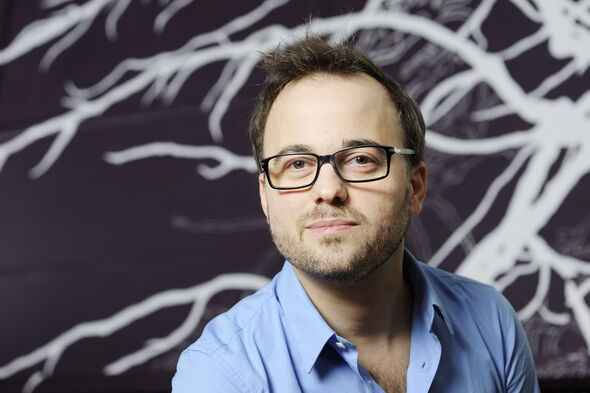
Student Roderick van Gils (TN): “I have the impression that there are not really going to be many drastic changes”
“I finished my Bachelor’s degree program last year. This academic year I only attend a few courses because I’m in the executive committee of a study association. I want to discuss with the student adviser how the subjects that I’m doing this year fit in with the whole program for next year. If I can use those subjects in my program – possibly by doing some extra work for a subject because its study load is increased from 4 to 5 ects - that would be great. If it is difficult to implement, it’s not a problem for me if the subjects I finish this year are not taken into account.
By now I have heard quite a lot about the Graduate School. I know quite some people who have information about it, I always pop in on and off at the course administration and on January 10 there was an information meeting at our department. The setup looks fine to me and I don’t have the impression that there are going to be many drastic changes for us. For one, we already had a mentor.
The SkillsLab sounds like a good initiative and a fine compromise has been found for gaining international experience: no longer obligatory, while you do have the option. I think it’s a good thing that we have lots of options available. That will be a puzzle later. Now I think I’m mainly going to attend plasma courses within Applied Physics and then move towards the business community. I find it very convenient that access to courses at Industrial Engineering, for instance, is facilitated. I don’t really worry about it, I’ll just wait and see how things turn out.”
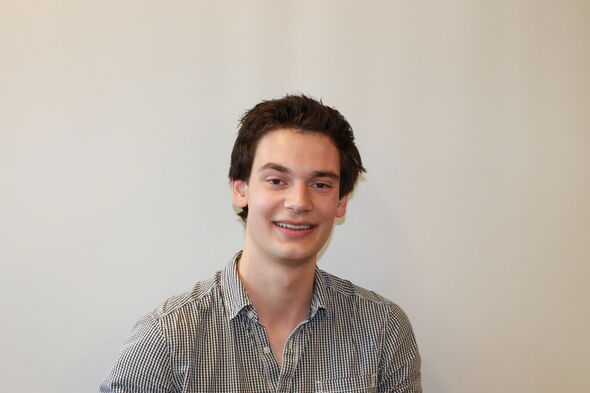
Student Jip Baltissen (IE&IS): “I also expect few problems combining top sport and my studies in the Master’s program”
“In September I’m beginning on my Master’s program. I’m still not sure whether it will be Innovation Sciences or Human-Technology Interaction. I attended presentations of both study programs and some information about the Graduate School was given there as well. It is great that you can compose your own cluster of subjects. I want to look purely at the subjects that look fun to me and base my choice on that. I’m a top sportsman, I take part in athletics at a high level, and I train mostly in the evening. So far I’ve had few problems combining studies and sport. I have always worked together closely with the student adviser and for the Master’s program I’m also going to check with him whether there are any obstacles to be expected.
First I did have the impression that our class would serve as guinea pigs, but now I’ve seen that there’s not really that much changing in the programs themselves. I suspect that it’s mainly the switch from passively attending lectures to participating in more interactive and dynamic courses, in which there is more discussion taking place. I really like the possibility that is given in the Master’s program of HTI of conducting small research projects in businesses, so that you can really get the feel of the business community.”
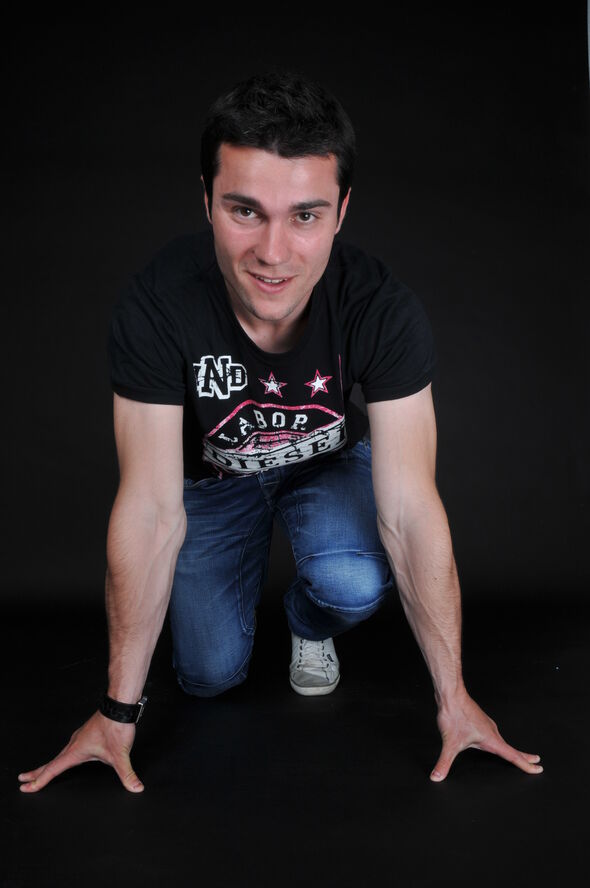
Jan Hensen, professor of Building Physics and Services: “A good moment to hold the courses up to the light”
Professor Jan Hensen is one of the lecturers who is going to convert his courses to 5 credits. He had soon found the solution: two courses will be combined. “I teach State of the art in building performance simulation for integrated solutions and Sustainable energy systems for the built environment and intrinsically those subjects fit in with each other very well. The aim is to arrive at the course Building performance and energy system simulation. That will take some more brainwork, though, it’s not as if we can simply sweep everything up into one big heap. Still, I don’t expect any major problems. We have many years of experience with those subjects and have also received a great deal of feedback.
Now we are also going to see whether we can fit in other forms of teaching and for this subject we are considering Enriched skeleton maps (a method in which students themselves can add insights on the basis of teaching materials, ed.). I think that this will make the arrangement of courses clearer for students and it is a good thing to have uniformity across the courses. Moreover, for us this is a great opportunity to hold everything up to the light.”
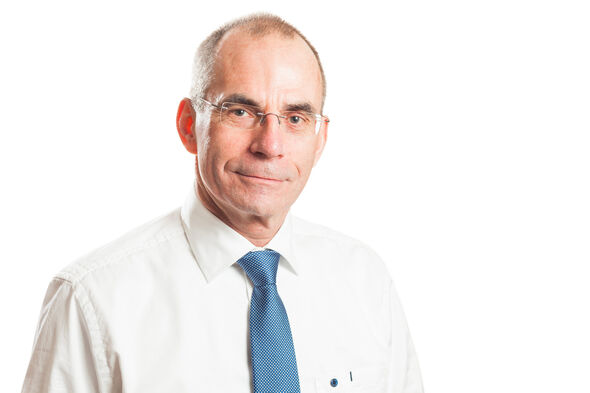
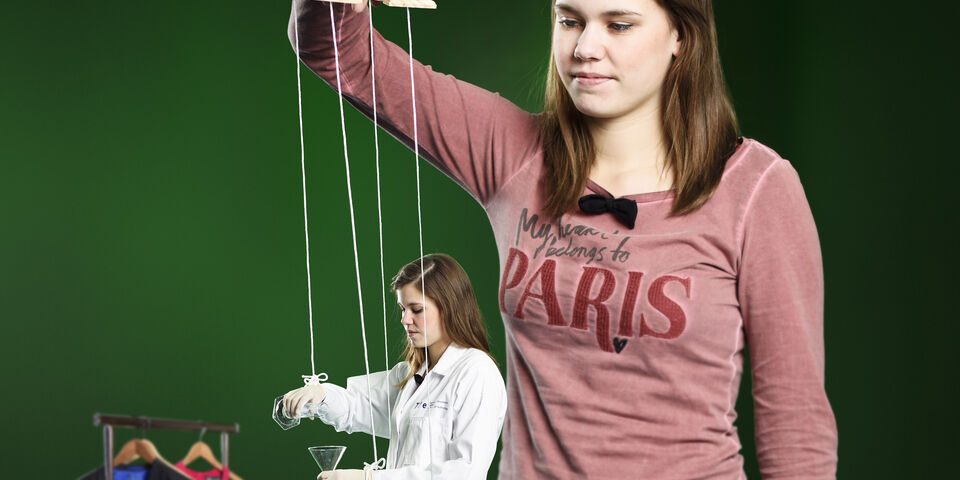

Discussion